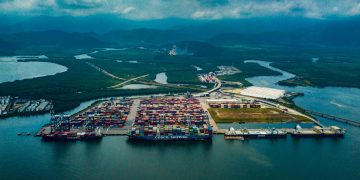Skuld Club informs on marine fuels blended with Cashew Nutshell Liquid (CNSL) biofuel and the operational problems that have been reported due to fuel contamination.
The shipping industry needs to shift to low, to zero-carbon emission fuels, including various biofuels. Cashew Nutshell Liquid (CNSL) is an example of the explored options for ‘drop-in’ fuels alongside other alternative fuels.
According to Skuld, several vessels have been reporting operational problems, mainly related to the fuel system, like injector failure, filter and heater clogging, fuel sludging, and deposit buildup due to fuel contamination.
These issues were detected by extended Gas Chromatography Mass Spectrometry (GCMS) testing of Heavy Fuel Oil (HFO) and Very Low Sulphur Fuel Oil (VLSFO) samples from the vessels. The tests showed a high presence of phenolic compounds of cardol, cardanol and anacardic acid.
CNSL-blends can cause serious problems to the engine components, such as accelerated wear and tear of the fuel pump components, cracks in the fuel systems, and poor engine performance, resulting in loss of power.
Skuld advises:
- It is very important always to conduct a vetting procedure when selecting a good bunker supplier.
- The latest version of ISO 8217:2024 should be used when testing the bunkered fuel. The latest version has Table 3 for Bio-Residual Marine Fuel specifications.
- The sales terms of bunker fuels and the warranty regarding the fuel’s fitness should always be checked.
- A Certificate of Quality should be requested prior to bunkering.
- A fuel analysis should always be carried out before using the bunkered fuel. As these phenolic compounds cannot be detected in the standard ISO 8217 test, an extended advanced
- GCMS test from a reputable fuel laboratory is recommended.
- It is also advised not to use untested or unestablished biofuel products for marine diesel engines.


































































